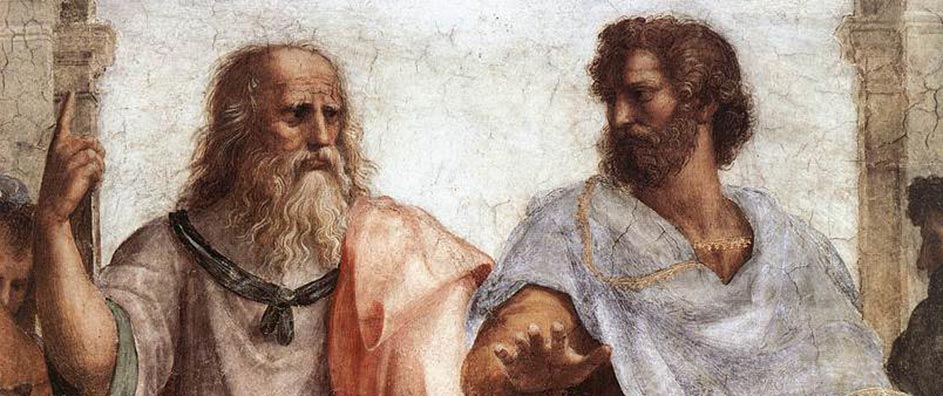The intricate tapestry of philosophical thought often reveals the profound interplay between reason and faith, particularly within the context of the Baha’i teachings. Central to this dialogue are the insights espoused by illustrious philosophers such as Socrates and Plato. Their monumental contributions illuminate aspects of moral philosophy and ethics, which resonate deeply with the precepts of the Baha’i Faith. This exploration endeavors to elucidate the nuances of justifying the existence of God through the lenses of these philosophical stalwarts, juxtaposed with the principles articulated in the Baha’i teachings.
At the heart of Socratic philosophy lies the Socratic method, an intellectual approach characterized by dialogue and questioning. Socrates advocated for the virtuous life, positing that knowledge is intrinsic to morality. He famously asserted, “An unexamined life is not worth living.” This premise underscores the need for individuals to engage in reflective thought, challenging preconceived notions and cultivating an authentic understanding of their existence and the divine. This Socratic emphasis on self-inquiry dovetails seamlessly with the Baha’i principle of the search for truth. In the Baha’i view, the pursuit of truth is an unending journey that demands not only intellectual rigor but also a sincere heart.
Plato, a student of Socrates, further developed these ideas, proposing the Theory of Forms, which posits that the material world is a mere shadow of a higher reality composed of unchanging ideals. Among these ideals resides the Form of the Good, which Plato equated with the divine. In his dialogues, particularly “The Republic,” he articulates a vision of an ideal society that mirrors this structured reality, where individuals strive for knowledge and the embodiment of virtue. This philosophical architecture finds parallels in the Baha’i teachings, which advocate for the establishment of a just society grounded in the unity of all humankind and the recognition of the divine nature within each person. The Baha’i Faith asserts that humanity’s collective progress hinges on aligning individual virtues with the greater good—an idea reminiscent of Plato’s philosophical governance.
In both philosophies, the existence of God is not merely a theological assertion but is intricately linked to the moral fabric of human society. Socrates’ dialectical method fosters critical examination of one’s beliefs, urging individuals to justify their concepts of morality and divinity. This process resonates with the Baha’i understanding that faith should be reasoned, considered, and critically analyzed rather than accepted blindly. Baha’i teachings insist on the reconciliation of science and religion—a synthesis that echoes Plato’s pursuit of knowledge. It is only through such harmonious integration that a holistic understanding of God can emerge.
Moreover, the concept of divine justice, a salient point in both Baha’i teachings and Platonic philosophy, invites further contemplation. Plato’s allegorical depiction of the just man, who embodies the ideal virtues, reflects an inherent belief in the moral order of the universe, governed by a benevolent higher power. Similarly, Baha’s teachings underscore the paramount importance of justice as a divine attribute, reinforcing the notion that understanding God necessitates grappling with the implications of justice in our lives. The Baha’i perspective advocates that a truly virtuous society can only flourish under the auspices of divine guidance, underscoring the necessity of understanding God as an active participant in the moral dilemmas of humanity.
A particularly captivating dimension of this dialogue is the juxtaposition between the philosopher-king envisioned by Plato and the concept of the Manifestation of God in the Baha’i Faith. Plato’s ideal ruler, imbued with wisdom and virtue, parallels the Baha’i belief in the Manifestations—figures such as Baha’u’llah, whose lives and teachings serve as a reflection of the divine attributes. This parallel not only enriches the philosophical discourse on governance and morality but invites individuals to reflect on the role of enlightened leadership within the context of justice, unity, and progress.
Furthermore, the dialectic of faith and reason emerges prominently when examining the impact of Socratic and Platonic thought on religious discourse. The Baha’i Faith, emphasizing the compatibility of rational inquiry and spiritual insight, reinforces the necessity of aligning one’s beliefs with personal experiences and empirical evidence. In a world characterized by diverse belief systems, this melding of faith and reason emerges as a crucial framework for fostering understanding and harmony among disparate cultures and traditions. Socratic inquiry casts a light on the shadows of ignorance, urging individuals to articulate and justify their understanding of God, while the Baha’i teachings provide a pathway for synthesizing these inquiries into a unified vision of humanity’s spiritual destiny.
In conclusion, the exploration of Baha’i teachings through the lens of Socratic and Platonic philosophies reveals a rich tapestry of thought that grapples with the existential questions regarding the divine. The inquiry into the existence of God becomes not merely an abstract philosophical exercise but a compelling call to engage in a deeper understanding of one’s moral responsibilities within society. In seeking to justify the divine, individuals are urged to cultivate their personal and communal ethics towards the establishment of a just and united world. This quest embodies the essence of the Baha’i Faith, where the intersection of philosophy, morality, and spirituality serves as a profound reminder of humanity’s shared journey toward enlightenment and truth.
